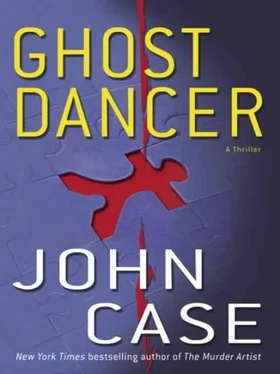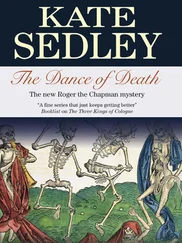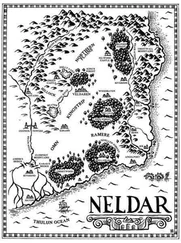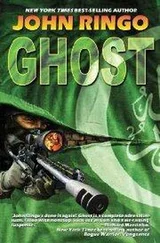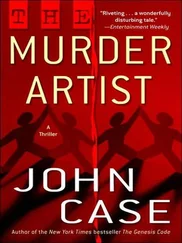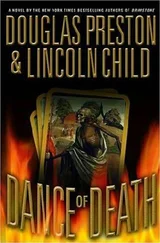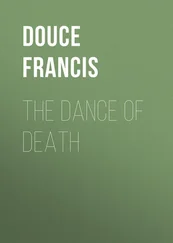Then he saw her.
She came through the swinging doors, heavy tray aloft, walking with the posture of a dancer. Wilson felt a spark of pure joy at the sight of her, probably, he thought, no more than the low-voltage shock of recognition. It was akin to the satisfaction of finding the pivotal equation, or fitting the last bolt into a construction.
She was more petite than he’d imagined, yet her body was curvaceous. He was glad to see that. Scientific studies proved a connection between the proportion of waist-to-hip size and fertility, a biological explanation of why men were attracted to such women. Unlike in her smiling photograph, her face was set in an expression of earnest concentration as she gracefully made her way through the crowded room to a table at the window.
He drank a second tea, watching Irina come and go from the kitchen.
Now she was clearing a table, hoisting her tray to her shoulder and then taking a moment to survey the area – for a customer wanting a check, for a new customer, for whatever waitresses look for – when her eyes caught his.
There was, of course, no sign of recognition on her part – he had not sent his own photograph. But he felt a quick sexual spark that took him by surprise. He held her gaze until she looked away. She was flustered and tripped on the leg of a table. Some silverware slid off her tray onto the floor and she knelt to pick it up.
He was tempted to help her.
Instead, he signaled his waitress and paid the bill, leaving a generous tip. Irina looked back his way once more, just before heading into the kitchen with her tray. This time, she smiled, and he returned the smile, and there was a band of sensation between them that was almost electric.
It occurred to him that he could wait outside the restaurant. Follow her home. Find a way.
But no, it wasn’t time. Not yet…
BERLIN | MARCH 1, 2005
Bobojon Simoni stood by the curb, looking up and down Yorkstrasse for a cab. Behind him, like a page from the comics, a wall of graffiti showed George Bush hanging from a streetlight, while New York burned on the bricks behind him.
In lights above the bank across the street, a sign blinked the time and temperature: 4:03 0°. Twilight and freezing. At least officially. In reality, it was raining one minute and snowing the next. Then it would turn into something in between, a sort of flying slush. Whatever it was, it stung his eyes as he gazed into the wind, screwing his face against the ice, blinking hard.
It was his own fault. He’d forgotten to bring the book, and now he was paying for it. He could see it, almost as if it were right in front of him, sitting on the table in the kitchen: a solid rectangle, neatly wrapped in brown butcher’s paper, taped, and tied with string. Addressed to the shop in Boston, all the book needed was a couple of stamps and a Customs form, and it could go on its way. Only now, because he’d forgotten it, he’d have to go back to the apartment and pick it up.
He’d left about forty-five minutes ago, with a list of errands in his head: uskadar post office toilet paper prayers. The idea was to have a cup of coffee at the Uskadar, a small cafe on a side street not far from the mosque. Like most of the cafe’s customers, the coffee was Turkish, and it wasn’t very good. But the owner was a “Bosniak,” and like Bobojon, he loved football. So there was always a match on the TV, high up on the wall behind the counter, and workmen watching.
The cafe itself was less than a mile from his apartment, but if he walked back home to get the book, the post office would be closed by the time he returned. Finding a cab could be difficult, though, especially since it was raining. Taxis were never plentiful in “SO36” – the down-at-heels neighborhood that Bobojon shared with nearly two hundred thousand “guest workers,” mostly Turks and Kurds. It was the old postal code for the eastern half of the Kreuzberg district, where Checkpoint Charlie was a tourist attraction.
He might as well go back to the cafe. He could mail the book in the morning and no one would care. The decision made, he was turning to leave when, out of nowhere, a taxi sluiced up to the curb, windshield wipers thudding back and forth. The driver leaned across the seat to the window, and looked up at him. “Wo zu?”
Jurgen preferred to work alone, and he usually did. But today was different. Today, he needed a partner.
They had been waiting outside Simoni’s building for twenty minutes, sitting half a block away in a black BMW with a broken defroster, windows dribbling with steam. They did what they could to keep the windshield clear, wiping away the fog with the front page of Bild, a tabloid newspaper. The headline read “Turbo Orgasms” and came with the picture of a brunette who appeared to be having one.
It was all a little embarrassing. And that was unfortunate, because Jurgen wanted to impress the woman in the seat beside him. Clara was new to the BfV. What must she think? First the defroster and then this turbo person! Of course, she pretended not to notice, but… mein Gott!
In the end, they just rolled down the windows, pulled their coats close, and froze.
The thing about today was, they didn’t know what the target looked like. All they had was a name (Bobojon Simoni), an address, and a telephone number. For all they knew, Herr Simoni was twenty years old. Or forty. Or sixty. He might be tall or short, fat or thin. Well dressed and bearded. Tie-dyed and clean-shaven. But a Bosnian – or someone traveling on a Bosnian passport.
Jurgen couldn’t work it alone – there was just no way to be sure the flat was empty. Sometimes people didn’t answer their phones. Sometimes they sat in the dark or napped on the couch. So he’d use the Wachtturm ploy. Go up to the door, and knock three times. If someone opened the door, he’d give him a handful of tracts and a copy of the der Wachtturm . Then Jurgen would launch into his spiel about Jehovah’s Witnesses and the end-times. Most of the time, the door would slam shut in their faces, and that would be the end of it. But not always. Wind him up with a couple of beers, and Jurgen would tell you how he’d converted a member of the Red Brigades to Jesus.
He checked his watch. Five after four. It would be dark soon. He dialed the flat for the third time. Again, no answer. He turned to Clara. “Shall we?”
She made a face.
“C’mon,” he said. They got out of the car.
She was a pretty woman, maybe ten years younger than Jurgen himself, and he wanted her to think well of him – and of the BfV. The Office for the Protection of the Constitution was an elite intelligence service whose main responsibility was tracking extremists – left, right, and religious. Clara’s former employer, the BKA, was the criminal police. The BfV was different. Sexier, somehow.
As they crossed the street to Simoni’s building, heads down against the weather, it occurred to Jurgen that most people would take them for social workers, what with their battered briefcases and woolen overcoats. And that was good, because nothing could be more ordinary. Social workers were to Kreuzberg as steelworkers were to the Ruhr.
She would install the bug while he searched for a computer. If he found one, he’d clone the hard drive to the laptop in his briefcase. The whole business shouldn’t take more than ten minutes, but of course, it would seem like hours. It always did.
The only question mark was Simoni himself. They had no idea where he was or when he’d return. Two days earlier BfV had received a query from Malaysia, a flash cable from the CIA station chief in Kuala Lumpur. During a recent debriefing, a foreign national detained under Malaysia’s Internal Security Act indicated that an attack on U.S. property and personnel was imminent. Simoni was implicated in a communications capacity.
Читать дальше
